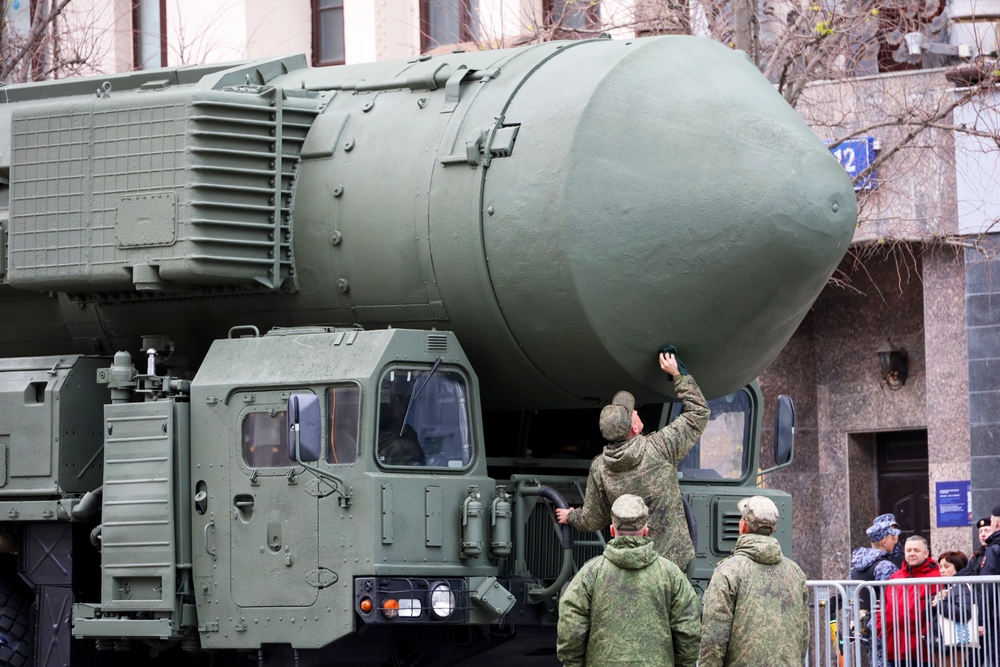Russia possesses the world’s largest stockpile of nuclear weapons.
Others are reading now
NATO’s decision not to intervene militarily in Ukraine is rooted in a stark reality: Russia’s nuclear capabilities.
Nuclear Risk is Primary Reason
Speaking at the Prague Defense Summit, Rob Bauer, Chair of NATO’s Military Committee, emphasized that the presence of nuclear weapons fundamentally changes the dynamics of the war.
“I am absolutely convinced that if the Russians didn’t have nuclear weapons, we would be in Ukraine and would have driven them out,” said Bauer, a Dutch Navy admiral, as quoted by Ukrainian outlet Zerkalo Nedeli.
According to L’Independent he clarified that the risk posed by Russia’s arsenal is the primary reason NATO has not deployed forces to Ukraine.
Also read
Russias Nuclear Capability
Russia possesses the world’s largest stockpile of nuclear weapons, estimated at over 4,400 operational warheads.
This includes intercontinental ballistic missiles (ICBMs), submarine-launched ballistic missiles, and air-delivered nuclear weapons.
These capabilities give Russia the ability to strike anywhere in the world, making it a significant threat to NATO and its member states.
Bauer acknowledged that NATO involvement in Ukraine is not entirely off the table but warned it would come at a massive cost.
“If NATO intervened directly, it would risk its survival as an organization,” he stated, framing the decision as a political one rather than a strictly military calculation.
Russia’s nuclear deterrent is bolstered by the potential support of its allies. China has a growing nuclear arsenal, while North Korea possesses dozens of nuclear warheads and regularly threatens their use.
Belarus, a close Russian ally, has agreed to host Russian nuclear weapons on its soil, further complicating NATO’s calculus.
NATO’s caution also stems from the concept of mutual assured destruction (MAD). A nuclear exchange between NATO and Russia could lead to catastrophic global consequences.
This doctrine has long prevented direct conflict between nuclear-armed powers.


